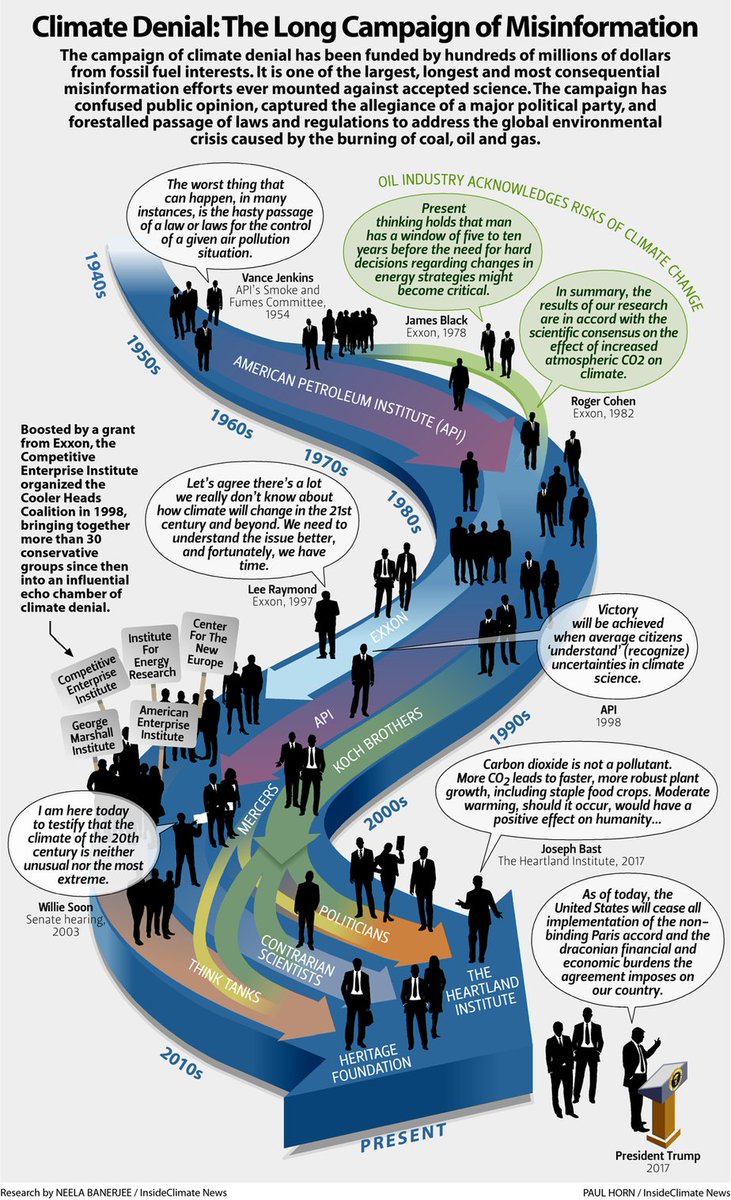1/ Nuiqsut is the only town in Alaska's prolific North Slope oil region, which is poised for another drilling boom.
The community has long been concerned about industry air pollution. There is reason to be anxious.
@shankman reports from the #Arctic: insideclimatenews.org/news/01082018/…
The community has long been concerned about industry air pollution. There is reason to be anxious.
@shankman reports from the #Arctic: insideclimatenews.org/news/01082018/…
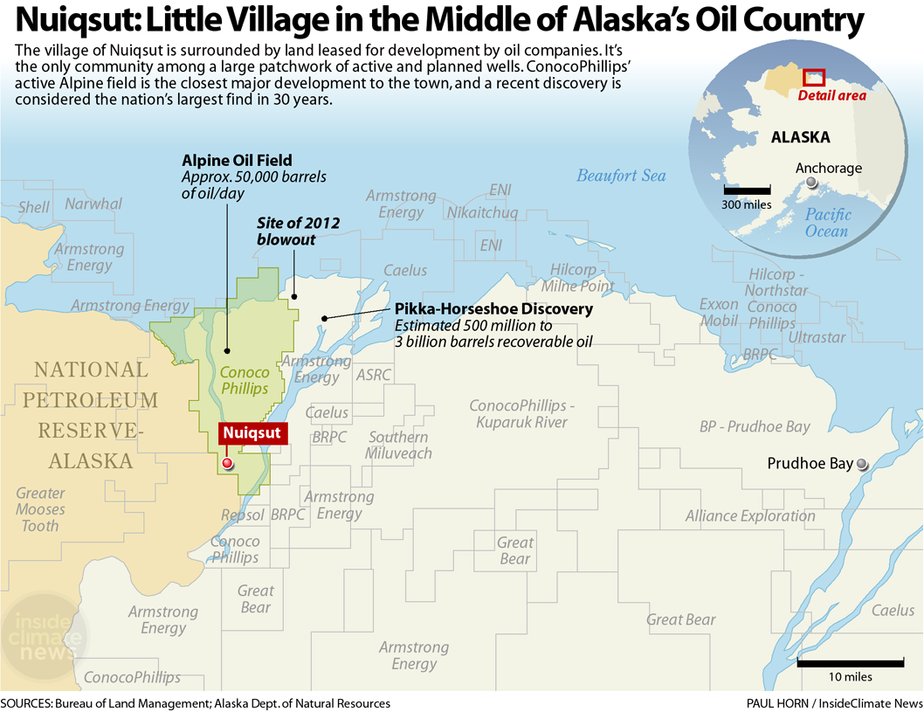
2/ "I was really stunned when I was up there in July [2017] to hear the fears that are so pervasive in the community that it even impacts the teenagers," said Barbara Trost of @alaskaDEC. 
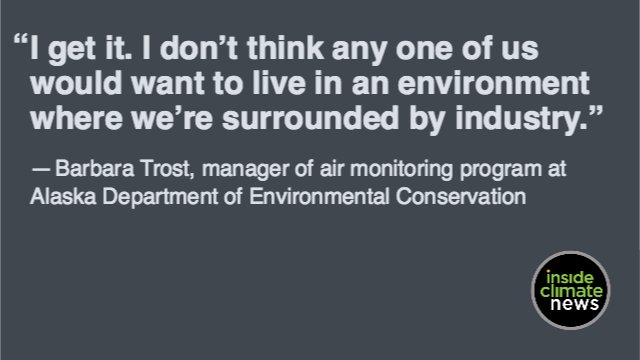
3/ More than three-quarters of Nuiqsut residents still live a traditional subsistence life, off the fish they catch, the whales they harvest and the caribou they hunt.
And they've found themselves on the frontlines of a modern crisis.
And they've found themselves on the frontlines of a modern crisis.
4/ Fossil fuel burning has already brought #climatechange to the town's doorstep, causing local temperatures to rise twice as fast as the global average, changing the sea ice and impacting species that people rely on for hunting.
5/ Emissions of black carbon give the Arctic a double punch: They not only exacerbate global warming worldwide, but they also darken the surface of sea ice, causing it to melt faster. 
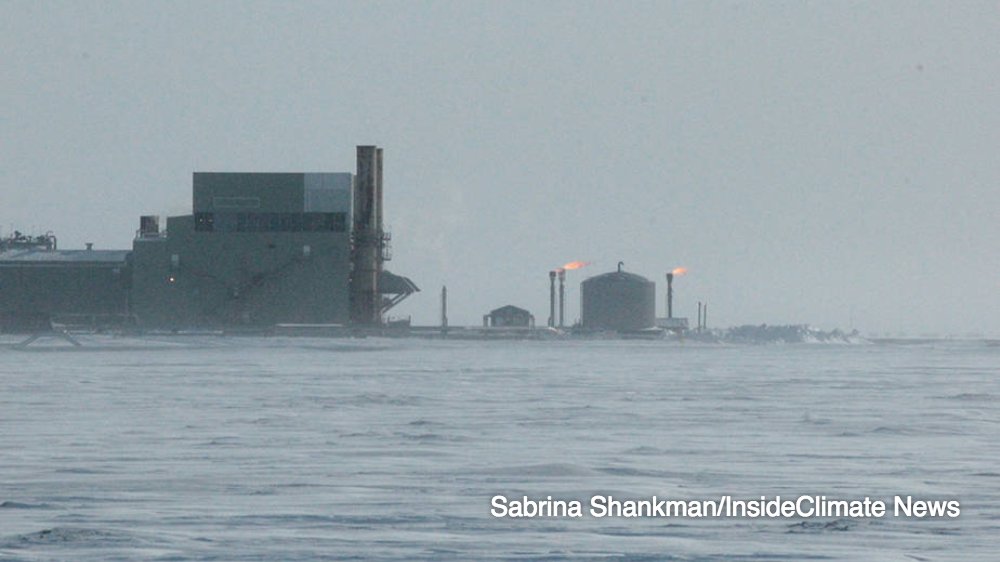
6/ Black carbon brings health consequences of its own. It is a main ingredient in fine particulate matter, among the leading environmental causes of poor health and premature death.
It is just one of the pollutants from oil, gas and coal production that can impact health.
It is just one of the pollutants from oil, gas and coal production that can impact health.
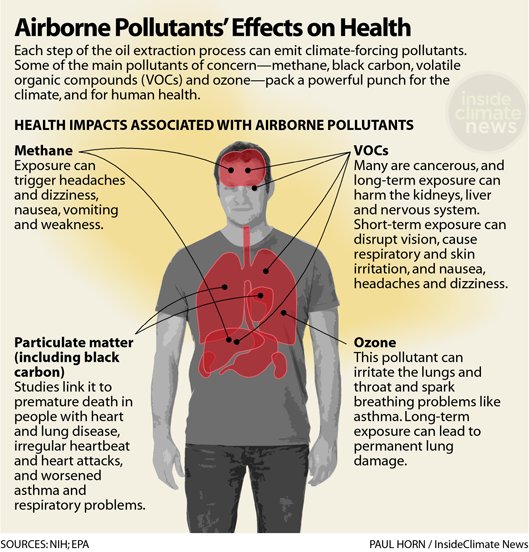
7/ Oil development has "proceeded too rapidly, without enough care for the health of the people from an air quality and subsistence perspective," says Pam Miller of @ak_action.
"And now they're virtually surrounded."
"And now they're virtually surrounded."
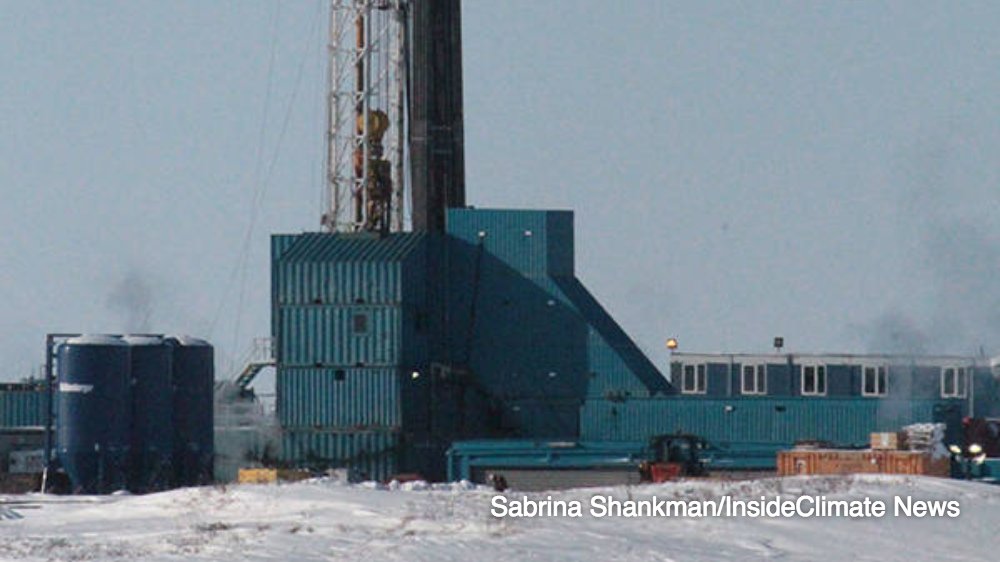
8/ Rosemary Ahtuangaruak, who worked as a health aid in #Nuiqsut from 1986 to 2000, saw the number of people treated for respiratory illness during that time rise from 1 to 75, as wells crept closer to the village.
"Our voices are not being heard," she wrote in 2003.
"Our voices are not being heard," she wrote in 2003.
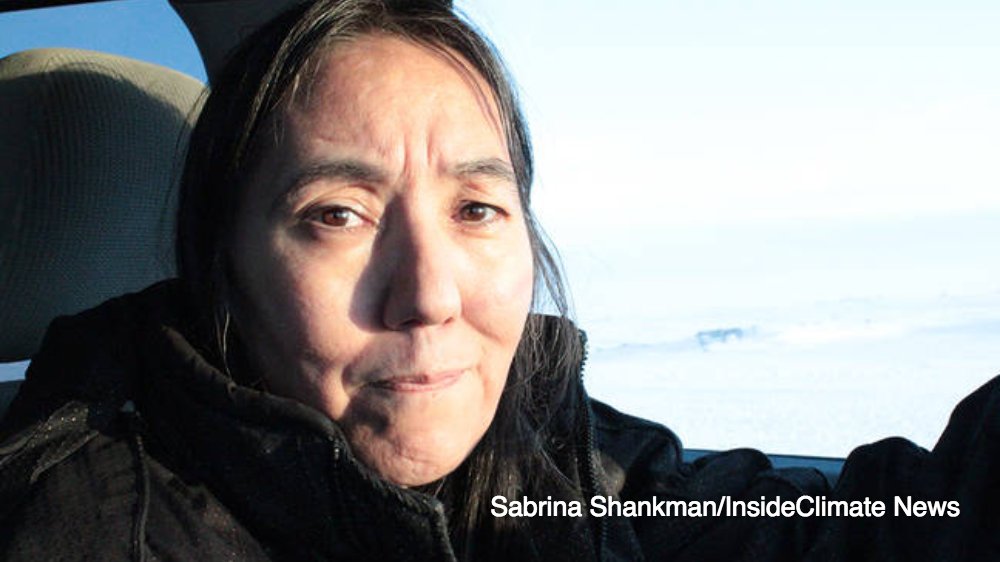
9/ As residents seek answers, they have learned that when it comes to industrial pollutants and health, drawing connections between symptoms and causes is difficult.
10/ Meet Martha Itta of the native village government. She's long worried about respiratory illnesses. Her own son has had to be flown out of Nuiqsut for medical treatment.
She wants a third party—someone without direct ties to industry—to monitor the air in Nuiqsut.
She wants a third party—someone without direct ties to industry—to monitor the air in Nuiqsut.

11/ Currently, air monitoring in Nuiqsut is done by ConocoPhillips Alaska because it owns major drill sites on the outskirts of town. 
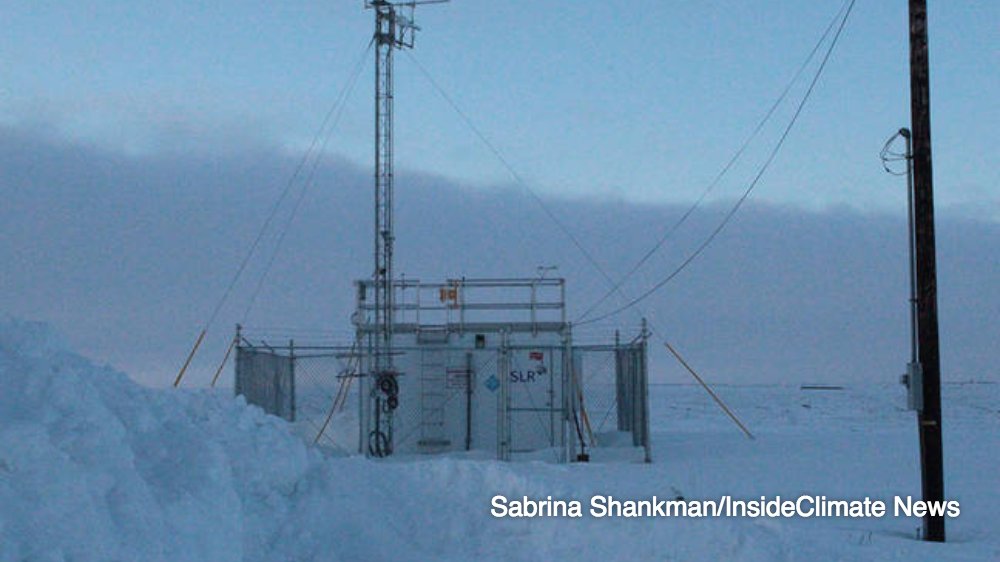
12/ ConocoPhillips says that decades of its own air quality monitoring have not indicated a problem. The company shares results with the village.
It says it is aware of concerns in Nuiqsut and has worked with the community to investigate them.
It says it is aware of concerns in Nuiqsut and has worked with the community to investigate them.

13/ Today, more than 50,000 barrels of oil—or roughly a tenth of the state's oil production—is pumped each day from oil fields owned by ConocoPhillips.
That number will balloon in the coming years as new projects come online and new discoveries are made.
That number will balloon in the coming years as new projects come online and new discoveries are made.

14/ In December 2017, as the Trump administration sought to clear the way for even more Arctic drilling, there was a massive lease sale in nearby state lands and the National Petroleum Reserve-Alaska.
15/ "When you talk about environmental justice, you talk about human rights, about future generations that will be dealing with industry as they move forward," says Nuiqsut resident Sam Kunuknana.
Read the full report by @shankman: insideclimatenews.org/news/01082018/…
Read the full report by @shankman: insideclimatenews.org/news/01082018/…
16/ This story is the latest in an ongoing ICN series on the impact of short-lived climate pollutants. Explore the archive of reports: insideclimatenews.org/tags/short-liv…
Learn more about #SLCPs and how they impact the Arctic: insideclimatenews.org/news/19032018/…
Learn more about #SLCPs and how they impact the Arctic: insideclimatenews.org/news/19032018/…
@ThreadReaderApp Please unroll this thread.
• • •
Missing some Tweet in this thread? You can try to
force a refresh


